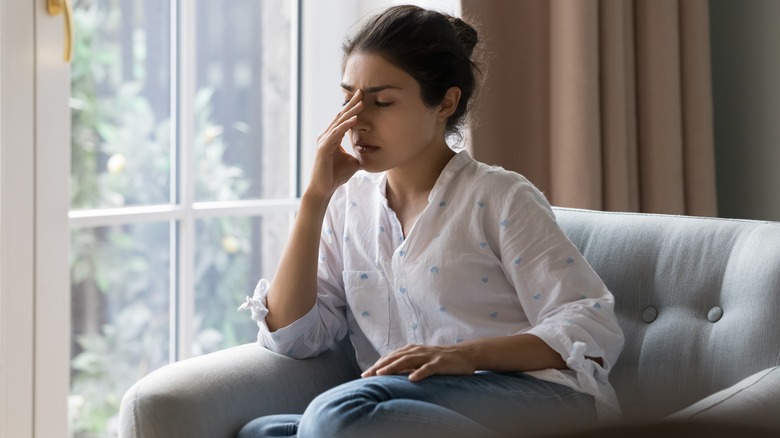How The Latest Booster Can Help Those Experiencing Long COVID
People who have been infected with COVID-19 for longer than four weeks have what the Centers for Disease Control and Prevention (CDC) defines as long COVID. This condition is complex because symptoms can last for months, seem to go away, and then return. Symptoms are also complicated because they vary from person to person. Some of the more common symptoms include fatigue, fever, chest pain, difficulty breathing, and a rapid heart rate. Some people may experience digestive problems, joint pain, and brain fog.
Because the symptoms of long COVID are diverse, treating it can be challenging. The Cleveland Clinic reports that eating a healthy diet, getting quality sleep, and exercise can help in some cases. But how do booster shots factor in? Dr. Stephen J. Thomas, an infectious disease specialist at Upstate Medical Center in Syracuse, New York, tells WebMD that a booster might help your immune system, and it might even reduce the risk of the virus becoming severe.
Boosters improved symptoms of long COVID in some people
While there isn't a lot of information about boosters and long COVID, some experts believe that they can only help. "The antibody response is appropriately boosted, and there is a decent chance this will help reduce the impact of long COVID as well," Dr. Scott Roberts, associate medical director for infection prevention at Yale New Haven Hospital, tells WebMD. "Waiting will only increase the risk of getting infected and increase the chances of long COVID," he adds.
Evidence seems to support this notion. A 2022 study published in the BMJ involving 28,356 British citizens revealed that most experienced a decrease in long COVID symptoms after getting vaccinated. Not only that, but symptoms also improved after a second dose. Roberts explains that it's best to discuss the matter with your doctor, but there's no reason to believe that a booster would be unsafe for treating long COVID.


